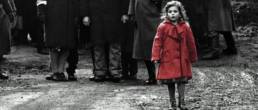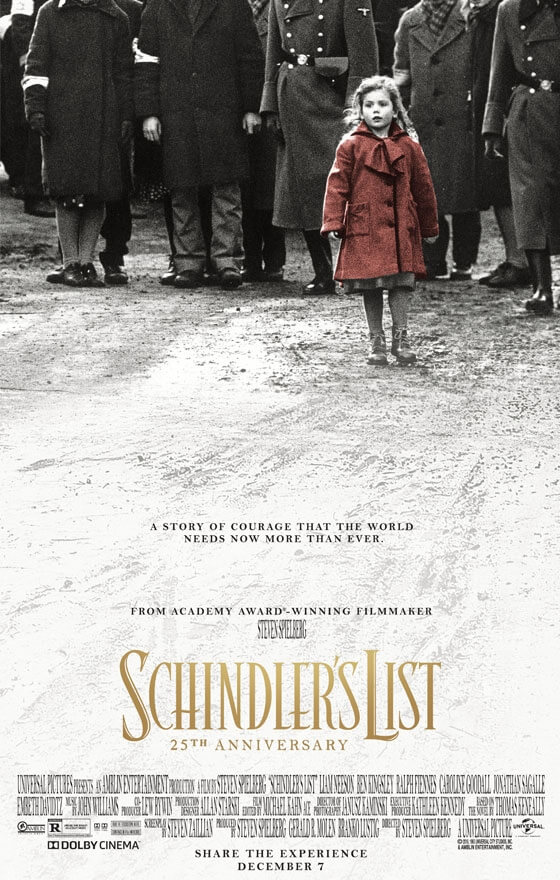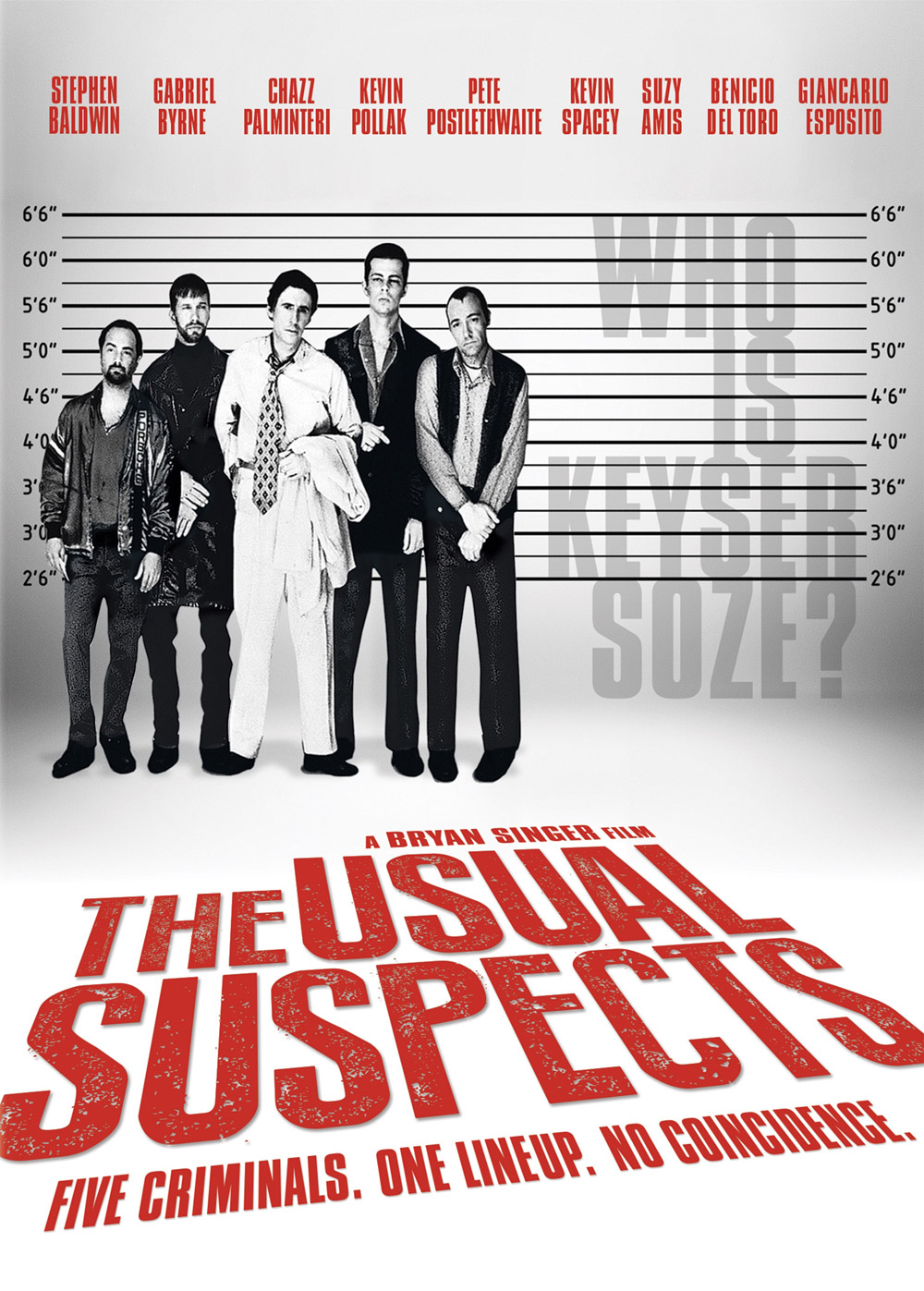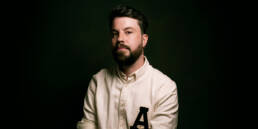
While rereading Robert McKee’s ‘Story: Style, Structure, Substance, and the Principles of Screenwriting’ to brush up on some storytelling elements, I was reminded of how many gorgeous movies our wicked minds have already made cinematic history with. I’m talking about the kind of feature-length films that inspired most of us to join this industry, in the first place.
The so-called classics.
Most I had already seen, albeit too young at the time, having been left with barely a memory of each. Some I’d had the pleasure to better dissect during film school. But then I checked my calendar and realized that this happened about 15 years ago—sigh… I figured it would be time to take a fine-toothed comb through Mr McKee’s recommended viewing list once more, now armed with a pair of adult eyes and a mind ripe enough to better understand the nuances and character studies that I might have missed in the past.
The best way to cover such a comprehensive list would be to sort them into 30-day nightly session clusters, otherwise the brain gets fried and the story is missed. Strap in, ladies and gentlemen, and allow me to walk you through my first 30-day movie challenge, comprising of one film per evening, in no specific order.
 ROBERT MCKEE, ©GENARO MOLINA/LA TIMES
ROBERT MCKEE, ©GENARO MOLINA/LA TIMES
Day 1: ‘Blade Runner’ (1982)
Of course, I followed this up with ‘Blade Runner 2049’ (2017), because it made all the sense in the world. Starring Rutger Hauer, Sean Young, Daryl Hannah, and Harrison Ford, the film was based on Philip K. Dick’s novel, ‘Do Androids Dream of Electric Sheep?’. Hampton Fancher and David Webb Peoples penned the screenplay, and Ridley Scott skilfully handled the direction. Production was problematic and plagued by an ever-increasing budget, but the end result went on to become a cult classic and a monumental landmark in the history of cinema. It garnered praise from Philip K. Dick himself, even though he only got to see the first 20 minutes prior to his death in 1982.
Trivia nugget: Rutger Hauer improvised a significant portion of his death scene speech, commonly known as the ‘tears in rain’ monologue, which Mark Rowlands described as ‘perhaps the most moving death soliloquy in cinematic history’ and represents a defining moment in Mr Hauer’s career.
 ‘BLADE RUNNER’ (1982), ©WARNER BROS.
‘BLADE RUNNER’ (1982), ©WARNER BROS.
Day 2: ‘Good Will Hunting’ (1997)
It won 2 of the 9 Academy Awards for which it was nominated, as Robin Williams took the Oscar home for Best Actor in a Supporting Role, and Matt Damon and Ben Affleck got theirs for Best Original Screenplay at the remarkably young ages of 25 and 27, respectively. Directed by Gus Van Sant, the film was originally set to be helmed by Mel Gibson, who dropped out. His successor, Michael Mann, was also let go after he insisted on not giving Mr Damon the lead role because he wasn’t popular enough as an actor.
Trivia nugget: Robin Williams ad-libbed the lines in the scene where he talks about his late wife’s farting antics. It’s why Damon was laughing so hard and probably why the camera was just a tiny bit shaky, too.
 ‘GOOD WILL HUNTING’ (1997), ©MIRAMAX
‘GOOD WILL HUNTING’ (1997), ©MIRAMAX
Day 3: ‘Chinatown’ (1974)
Written by Robert Towne and directed by Roman Polanski, this film is still a masterclass in dramatic storytelling, probably because of the spellbinding way in which the forlorn and enigmatic tale unfolds with a tight and splendidly tense pacing. Starring Jack Nicholson, Faye Dunaway, and John Huston, ‘Chinatown’ won the Oscar for Best Original Screenplay.
Trivia nugget: The film was followed by a sequel, ‘The Two Jakes’ (1990), which Towne wrote and Nicholson directed. There was supposed to be a third part, as well, but elements of the story only made it as far as being incorporated into ‘Who Framed Roger Rabbit’ (1988), which was advertised as a film-noir spoof and homage to ‘Chinatown’.
 ‘CHINATOWN’ (1974), ©PARAMOUNT PICTURES
‘CHINATOWN’ (1974), ©PARAMOUNT PICTURES
Day 4: ‘Mystic River’ (2003)
Directed by Clint Eastwood, the film’s screenplay was penned by Brian Helgeland of ‘L.A. Confidential’ (1997) and ‘Man on Fire’ (2004) fame, based on the novel ‘Mystic River’ by Dennis Lehane. It brought Sean Penn and Tim Robbins each an Academy Award for their riveting performances, featuring some stunning acting chops by the revered Laura Linney and Marcia Gay Harden alongside Kevin Bacon and Lawrence Fishburne.
 ‘MYSTIC RIVER’ (2003), ©WARNER BROS.
‘MYSTIC RIVER’ (2003), ©WARNER BROS.
Day 5: ‘The Accidental Tourist’ (1988)
Geena Davis won an Academy Award for her supporting role, and Frank Galati and Lawrence Kasdan earned a nod for Best Adapted Screenplay. William Hurt and Kathleen Turner execute their roles beautifully, as well, though I remain particularly fond of Amy Wright, David Ogden Stiers, and Ed Begley Jr. as Macon’s delightfully dull and neurotic siblings.
 ‘THE ACCIDENTAL TOURIST’ (1988), ©WARNER BROS.
‘THE ACCIDENTAL TOURIST’ (1988), ©WARNER BROS.
Day 6: ‘Barry Lyndon’ (1975)
I’m forever a fan of Ryan O’Neal. There’s something about him that just works for the characters which he has portrayed over the years, and none have been as enthralling as the titular hero of Stanley Kubrick’s insanely ambitious feature-length endeavour. Based on ‘The Luck of Barry Lyndon’ by William Makepeace Thackeray, the film won 4 Academy Awards, with Best Art Direction and Best Costume Design deservedly among them.
Trivia nugget: At one point, Kubrick’s name ended up on an I.R.A. hit list for featuring English soldiers in his Ireland scenes, reason for which the director was forced to move the entire production to England and dropped several scenes in the process.
 ‘BARRY LYNDON’ (1975), ©PEREGRINE/HAWK FILMS
‘BARRY LYNDON’ (1975), ©PEREGRINE/HAWK FILMS
Day 7: ‘Interview with the Vampire: The Vampire Chronicles’ (1994)
I will never get enough of Tom Cruise’s mischievous Lestat and Brad Pitt’s emotionally tormented Louis. The screenplay was penned by Anne Rice, who also wrote the source material and gave the world a much more romantic take on the legendary blood-drinking monster, while Neil Jordan stepped in as director. It brought forth the immensely talented Kirsten Dunst as the vampire child Claudia, and it continues to entrance viewers with its literary charm, gory sensuality, and gorgeous costume design.
 ‘INTERVIEW WITH THE VAMPIRE: THE VAMPIRE CHRONICLES’ (1994), ©GEFFEN PICTURES
‘INTERVIEW WITH THE VAMPIRE: THE VAMPIRE CHRONICLES’ (1994), ©GEFFEN PICTURES
Day 8: ‘Dances with Wolves’ (1990)
Michael Blake published the story in novel form first in 1988 before Kevin Costner picked up the film rights for his stellar directorial debut. Aside from the fact that ‘Dances with Wolves’ won a slew of awards, including the Oscar for Best Picture, Best Director, and Best Adapted Screenplay, the film offered a respectful and sympathetic depiction of the First Nations, helping boost the number of Indigenous actors in Hollywood. This led to the Sioux Nation to adopt Mr Costner as an honorary member.
 ‘DANCES WITH WOLVES’ (1990), ©TIG PRODUCTIONS
‘DANCES WITH WOLVES’ (1990), ©TIG PRODUCTIONS
Day 9: ‘E.T. the Extra-Terrestrial’ (1982)
I’d almost forgotten how absolutely adorable Henry Thomas once was as Elliott. Written by Melissa Mathison and directed by Steven Spielberg, ‘E.T. the Extra-Terrestrial’ was a box office smash hit and an awards-circuit darling due to its exquisite visual and special effects, and it propelled the genre of science fiction into a more commercial section of cinematography. Ahead of its time and timeless in equal measure.
 ‘E.T. THE EXTRA-TERRESTRIAL’ (1982), ©UNIVERSAL PICTURES
‘E.T. THE EXTRA-TERRESTRIAL’ (1982), ©UNIVERSAL PICTURES
Day 10: ‘The Flight of the Phoenix’ (1965)
Written by Lukas Heller and based on the eponymous novel by Elleston Trevor, ‘The Flight of the Phoenix’ is a beautiful yet harrowing tale of survival directed by Robert Aldrich and fiercely led by James Stewart, Richard Attenborough, and Peter Finch.
 ’THE FLIGHT OF THE PHOENIX’ (1965), ©THE ASSOCIATES & ALDRICH COMPANY
’THE FLIGHT OF THE PHOENIX’ (1965), ©THE ASSOCIATES & ALDRICH COMPANY
Day 11: ‘The Godfather’ (1972)
This is, without a doubt, one of the greatest films ever made. It’s not a matter of opinion anymore. It’s a fact, perfectly illustrated by the countless awards it earned—among them three Oscars for Best Picture, Best Actor in a Leading Role, and Best Adapted Screenplay. Based on the bestselling novel by Mario Puzo and written by the author in partnership with Francis Ford Coppola, ‘The Godfather’ remains one of cinema’s most important films.
Trivia nugget: The cat wandered in from one of the sets and was never intended to be in the movie. She was so content to sit in Mr Welles’ lap that her purrs interfered with some of his lines on the audio track, leading to additional editing work to deliver dialogue.
 THE GODFATHER’ (1972), ©PARAMOUNT PICTURES
THE GODFATHER’ (1972), ©PARAMOUNT PICTURES
Day 12: ‘Casablanca’ (1942)
Sometimes, there comes a film that is a trifecta of greatness, earning the most prestigious awards for its direction, for its screenplay, and for the coveted Best Picture category in one sweeping ceremony. Director Michael Curtiz has 179 film credits to his name, yet none would remain so deeply embedded within the history of cinema as ‘Casablanca’ whilst bearing IMDb’s exceptionally green Metascore of 100.
 ‘CASABLANCA’ (1942), ©WARNER BROS.
‘CASABLANCA’ (1942), ©WARNER BROS.
Day 13: ‘His Girl Friday’ (1940)
Like many of the films of that era, this one is problematic from a racial perspective, given some of the derogatory terms used by the characters and knowingly penned by the writers (Charles Lederer, Ben Hecht, and Charles MacArthur) under the direction of Howard Hawks. With that stain on its poster, however, I must admit that ‘His Girl Friday’ is a work of art in terms of dialogue and comedic screenwriting, while Cary Grant and Rosalind Russell make a fantastic pair on the silver screen.
 ‘HIS GIRL FRIDAY’ (1940), ©COLUMBIA PICTURES
‘HIS GIRL FRIDAY’ (1940), ©COLUMBIA PICTURES
Day 14: ‘Jaws’ (1975)
Peter Benchley and Carl Gottlieb weren’t given an Oscar for their screenplay, and Steven Spielberg didn’t get one for direction, either. Yet this film remains a classic and an innovative work of cinematic art, a brilliant ‘scary movie’ with an unnatural amount of tension at every turning point. Thank the stars for Roy Scheider’s decision to ad-lib the ‘You’re gonna need a bigger boat’ line, while we’re at it.
Trivia nugget: When John Williams originally played the score for Mr Spielberg, the director laughed and said, ‘That’s funny, John, really; but what did you really have in mind for the theme of “Jaws”?’ Williams took home an Academy Award for this score.
 ‘JAWS’ (1975), ©UNIVERSAL PICTURES
‘JAWS’ (1975), ©UNIVERSAL PICTURES
Day 15: ‘Kramer vs. Kramer’ (1979)
Praised by Robert McKee for its brilliant dramatic storytelling and Robert Benton’s ability to convey so much detail within each sequence, ‘Kramer vs. Kramer’ is truly a titan of the big screen. The breakfast scene after Joana’s departure alone is a treasure trove of personal information and emotion. Dustin Hoffman’s exquisite acting aside, Meryl Streep is such a good thespian that I found myself genuinely loathing her character.
 KRAMER VS. KRAMER’ (1979), ©COLUMBIA PICTURES
KRAMER VS. KRAMER’ (1979), ©COLUMBIA PICTURES
Day 16: ‘The Last Emperor’ (1987)
I’ll never forgive Bernardo Bertolucci for what he and Marlon Brando did to Maria Schneider for that infamous scene in ‘Last Tango in Paris’ (1972), but I shall give credit where it is due. ‘The Last Emperor’ is a superb and sprawling historical epic based on Pu Yi’s published autobiography, chronicling the life of China’s last monarch.
Trivia nugget: It’s one of the few motion pictures made in and about China with the full cooperation of its government—so much so that when Queen Elizabeth II tried to visit the Forbidden City during a state trip, the film’s production took priority for its immense coronation scene.
 ‘THE LAST EMPEROR’ (1987), ©RECORDED PICTURE COMPANY (RPC)
‘THE LAST EMPEROR’ (1987), ©RECORDED PICTURE COMPANY (RPC)
Day 17: ‘The Manchurian Candidate’ (1962)
While I loved Jonathan Demme’s Liev Schreiber, Meryl Streep, and Denzel Washington-led remake of the 1962 original directed by John Frankenheimer, I absolutely love the outstanding performances of Frank Sinatra, Angela Lansbury, and Laurence Harvey—the latter, especially, for his portrayal of Raymond Shaw. Another masterpiece of cinema, ‘The Manchurian Candidate’ didn’t receive any Academy Awards, but George Axelrod’s screenplay is a lesson in how tension is best delivered.
 ‘THE MANCHURIAN CANDIDATE’ (1962), ©M.C. PRODUCTIONS
‘THE MANCHURIAN CANDIDATE’ (1962), ©M.C. PRODUCTIONS
Day 18: ‘Leaving Las Vegas’ (1995)
I actually read Mike Figgis’s screenplay before I saw the movie during my second year of film school. John O’Brien’s book, upon which the movie is based, was an even harder read. But I’ll admit that the feature itself was the most difficult part, as there is something absolutely gut-wrenching in Nicholas Cage’s performance. It was genuinely crushing to watch Ben Sanderson virtually drink himself to death.
 ‘LEAVING LAS VEGAS’ (1995), ©LUMIERE PICTURES
‘LEAVING LAS VEGAS’ (1995), ©LUMIERE PICTURES
Day 19: ‘Nanook of the North’ (1922)
Directed by Robert J. Flaherty, ‘Nanook of the North’ is more than just a touching silent predecessor to the modern documentary. It’s the very first instance of dramatic storytelling used to narrate and edit real-life footage of one specific Inuit family living in the Arctic Circle.
Trivia nugget: Alas, despite being part of the Criterion Collection, the National Film Registry, and Roger Ebert’s list of Great Movies, many of the documentary’s scenes were staged for the purpose of showing how the Inuit lived before modern times, according to Flaherty.
 ‘NANOOK OF THE NORTH’ (1922), LES FRÈRES REVILLON/PATHÉ EXCHANGE
‘NANOOK OF THE NORTH’ (1922), LES FRÈRES REVILLON/PATHÉ EXCHANGE
Day 20: ‘Ordinary People’ (1980)
Robert Redford’s directorial debut, understandably awarded with an Oscar. Timothy Hutton’s acting debut, deservedly awarded with an Oscar. It went on to take two more golden statuettes home—one for Best Picture, and once for Best Adapted Screenplay, and thank the stars for screenwriters like Alvin Sargent for telling such a moving story that inadvertently and effectively captures the look, the sound, and the temper of a broken American family struggling to adjust after a tragedy.
 ‘ORDINARY PEOPLE’ (1980), ©PARAMOUNT PICTURES
‘ORDINARY PEOPLE’ (1980), ©PARAMOUNT PICTURES
Day 21: ‘The Passion of Joan of Arc’ (1928)
Carl Theodor Dreyer didn’t allow any makeup for his actors, which only served to enhance Maria Falconetti’s devastating performance as the woman who was first a martyr before she became a patron saint of France. ‘The Passion of Joan of Arc’ was virtually the only movie Falconetti made, yet it went on to redefine silent cinema.
Trivia nugget: This film was considered lost for many years, until an almost complete print emerged in 1978 as part of a collection that an Italian priest had once used for screenings in psychiatric facilities.
 ‘THE PASSION OF JOAN OF ARC’ (1928), ©SOCIÉTÉ GÉNÉRALE DES FILMS
‘THE PASSION OF JOAN OF ARC’ (1928), ©SOCIÉTÉ GÉNÉRALE DES FILMS
Day 22: ‘Q & A’ (1990)
Based on the book by Edwin Torres, I can’t say it’s the best among Sidney Lumet’s works, but it’s certainly up there. The story is so masterfully crafted that it leads this stellar cast into a memorable performance. Nick Nolte is downright terrifying. Timothy Hutton carries himself with a certain ingenuity that is mercilessly crushed by the harsh reality of corruption within New York’s police force. And Armand Assante earned himself a Golden Globe nod for his Bobby Texador.
 ‘Q & A’ (1990), ©REGENCY INTERNATIONAL PICTURES
‘Q & A’ (1990), ©REGENCY INTERNATIONAL PICTURES
Day 23: ‘Indiana Jones and the Raiders of the Lost Ark’ (1981)
Yet another revolutionary motion picture from Steven Spielberg by way of George Lucas, Philip Kaufman, and the illustrious Lawrence Kasdan, this first installment of Indy’s blockbuster feature series takes us on a mad chase after the fabled Ark of the Covenant in 1936, which the Nazis nefariously intend to unleash upon the world. Personally, I love Harrison Ford’s rendition of Indiana Jones and dread the day when another actor will be cast for the inevitable reboot.
 ‘INDIANA JONES AND THE RAIDERS OF THE LOST ARK’ (1981), ©PARAMOUNT PICTURES/LUCASFILM
‘INDIANA JONES AND THE RAIDERS OF THE LOST ARK’ (1981), ©PARAMOUNT PICTURES/LUCASFILM
Day 24: ‘Schindler’s List’ (1993)
This isn’t just a Holocaust film. That tragedy serves more as a backdrop for a double portrait—of Oskar Schindler, swindler of the Third Reich, and of Amon Goeth, evil incarnate and heartless psychopath, both men born from the filthy opportunities of war. It racked up a plethora of awards, including the Oscar for Best Picture, Best Director, and Best Adapted Screenplay. The final scene at Schindler’s grave completely broke me. I don’t remember crying this hard since the finale of ‘Supernatural’ (2005-2020).
 ‘SCHINDLER’S LIST’ (1993), ©UNIVERSAL PICTURES
‘SCHINDLER’S LIST’ (1993), ©UNIVERSAL PICTURES
Day 25: ‘Tender Mercies’ (1983)
Written by Horton Foote and directed by Bruce Beresford, ‘Tender Mercies’ won Robert Duvall his only Academy Award in seven nominations. It’s like nothing else in its mixed genre of drama and romance—its quiet softness and simmering despair are everything this film needs to take a place among the greatest stories ever written for the silver screen.
 ‘TENDER MERCIES’ (1983), ©ANTRON MEDIA PRODUCTION
‘TENDER MERCIES’ (1983), ©ANTRON MEDIA PRODUCTION
Day 26: ‘Dog Day Afternoon’ (1975)
Frank Pierson signed the screenplay for this cinematic oeuvre, based on a magazine article by P.F. Kluge and Thomas Moore, which in turn was inspired by a true event. It got Pierson a well-deserved Oscar. I mentioned ‘Q & A’ earlier as not being Sidney Lumet’s best, and I’d like to stick that specific label right here. ‘Dog Day Afternoon’ is absolutely his best.
Trivia nugget: A scene from this movie appears in the first episode of David Fincher’s ‘Mindhunter’ (2017) during a hostage negotiation training session at Quantico.
 ‘DOG DAY AFTERNOON’ (1975), ©WARNER BROS.
‘DOG DAY AFTERNOON’ (1975), ©WARNER BROS.
Day 27: ‘The Usual Suspects’ (1995)
In hindsight, a couple of this film’s headliners are… problematic, to say the least, yet this film cannot be forgotten nor ignored. The performances are out of this world, and that requires not only immense talent but good direction and a fantastic script. I think Bryan Singer was young and hungry when he shot this, and it shows. Every other credit of his fades in comparison. Most of the props go to Christopher McQuarrie, however, as he did win the Oscar for Best Original Screenplay.
 ‘THE USUAL SUSPECTS’ (1995), ©POLYGRAM FILMED ENTERTAINMENT
‘THE USUAL SUSPECTS’ (1995), ©POLYGRAM FILMED ENTERTAINMENT
Day 28: ‘The Conversation’ (1974)
HBO is currently hiding such hidden gems in its Movies category if you scroll down enough. Written and directed by Francis Ford Coppola, ‘The Conversation’ is a noteworthy mystery thriller made singular by Gene Hackman’s outstanding performance—a key moment in his career, for that matter.
 ‘THE CONVERSATION’ (1974), ©THE COPPOLA COMPANY
‘THE CONVERSATION’ (1974), ©THE COPPOLA COMPANY
Day 29: ‘Pulp Fiction’ (1994)
Few screenwriters/directors master the art of dialogue in a feature film as skilfully as Quentin Tarantino does in ‘Pulp Fiction’. Roger Ebert went as far as comparing his hard-boiled screen prose with the likes of Raymond Chandler and Elmore Leonard. It’s easy to see why, though, as the high quality drives humour without even asking for it, so it’s no wonder Tarantino won an Academy Award for his writing. ‘Pulp Fiction’ is one of those movies that you have to watch in this lifetime—though I’d be remiss if I didn’t specify that every title in this first list is worthy of such attention and appreciation. I’ll also call it a masterpiece lacking a message.
 PULP FICTION’ (1994), ©MIRAMAX
PULP FICTION’ (1994), ©MIRAMAX
Day 30: ‘Jackie Brown’ (1997)
I made this selection on purpose, if only to end the 30-day-movie-challenge with something delightfully palatable while also comparing the aesthetics between Tarantino’s most popular film and his only adaptation. It felt appropriate since Mr Ebert brought Elmore Leonard into the conversation. The source material—the novel titled ‘Rum Punch’—serves as the foundation for my favourite Tarantino movie. I absolutely adore Pam Grier and Robert Forster; their chemistry is magnificent. On the other hand, Robert De Niro seems to have wandered into the picture, somehow, yet manages to make sense. It still befuddles me.
Trivia nugget: Tarantino was initially worried that Elmore Leonard might not like the changes he made to the story. It turns out the author actually liked the script so much, he said it was the best he’d read up to that point, and certainly among the best of the 26 adaptations of his novels and short stories.
 ‘JACKIE BROWN’ (1997), ©MIRAMAX
‘JACKIE BROWN’ (1997), ©MIRAMAX
I will absolutely do this again. There are so many grand titles that are worth revisiting—or tackling for the first time, if you’re like me, and your watchlist gets occasionally engorged beyond manageability and in desperate need of slimming down. A movie a day keeps the dullness away.
Jules R. Simion
Jules is a writer, screenwriter, and lover of all things cinematic. She has spent most of her adult life crafting stories and watching films, both feature-length and shorts. Jules enjoys peeling away at the layers of each production, from screenplay to post-production, in order to reveal what truly makes the story work.
An Interview with Anna Drubich
Anna Drubich is a Russian-born composer of both concert and film music, and has studied across…
A Conversation with Adam Janota Bzowski
Adam Janota Bzowski is a London-based composer and sound designer who has been working in film and…
Interview: Rebekka Karijord on the Process of Scoring Songs of Earth
Songs of Earth is Margreth Olin’s critically acclaimed nature documentary which is both an intimate…
Don't miss out
Cinematic stories delivered straight to your inbox.
Ridiculously Effective PR & Marketing
Wolkh is a full-service creative agency specialising in PR, Marketing and Branding for Film, TV, Interactive Entertainment and Performing Arts.


